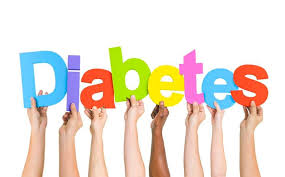How to Harness the Power of Diabetes Support Groups?
- admin
- September 4, 2024
- 3:17 pm
- No Comments

Want to know how to harness the power of diabetes support groups???
Well, for this, you need to make a serious effort reading this article and even offering your comments.
Living with diabetes can feel like a never-ending rollercoaster. From monitoring blood sugar levels to managing medication and dietary restrictions, it is no wonder that many people with diabetes feel overwhelmed at times.
But what if there was a place where you could share your experiences, get support, and learn valuable tips from people who truly understand what you’re going through?
That is where diabetes support groups come in.
In this article, we will explore:
- What diabetes support groups are
- How they can help improve your mental and physical well-being
- Different types of diabetes support groups available
- How to find the right group for you
- The science-backed benefits of support groups
- FAQs on Diabetes Management via Support Groups
- How to make the most of your experience in these groups
So, let me dive in and uncover how you can harness the power of diabetes support groups to improve your health and quality of life.
What Are Diabetes Support Groups?
A diabetes support group is a gathering (either in-person or online) where people with diabetes come together to share their experiences, learn from each other, and offer emotional support.
These groups can be led by healthcare professionals, such as diabetes behavioral professionals or certified nutritionists, or they can be peer-led by individuals living with diabetes.
Support groups provide a space where people can connect on a personal level, discuss their challenges, and celebrate their successes.
They serve as a reminder that no one has to face diabetes alone.
The social connection and understanding from others in the same boat make support groups a powerful tool in diabetes management.

The Benefits of Joining a Diabetes Support Group
Joining a diabetes support group offers a variety of benefits—some you might expect and others that may surprise you.
Here are some key ways in which these groups can help:
Emotional Support
Living with a chronic condition can take a toll on mental health.
In fact, studies show that people with diabetes are two to three times more likely to suffer from depression and anxiety. Diabetes support groups offer a safe environment to talk about the emotional struggles that come with managing the disease.
Hearing others share their experiences can reduce feelings of isolation and improve emotional well-being.
Shared Knowledge and Practical Tips
Managing diabetes is complicated. Whether it is figuring out carb counting, adjusting to new medication, or learning how to exercise without triggering blood sugar fluctuations, there is always something new to learn.
A support group is a fantastic resource for practical tips. Group members often share meal ideas, coping strategies, and tips for overcoming everyday challenges.
It is like having a brain trust of diabetes experts at your disposal!
Increased Accountability
When you’re part of a support group, there is a sense of accountability that can motivate you to stay on top of your diabetes management.
Group members check in with each other about goals, whether it is managing blood sugar levels, sticking to a meal plan, or staying active.
This shared responsibility can help keep you on track and remind you of your goals
Better Self-Care
Support groups encourage members to prioritize their own self-care.
Through discussions and shared experiences, you can learn the importance of taking breaks, managing stress, and creating a balanced routine.
This focus on self-care can lead to better blood sugar control and overall health improvements.
The Science Behind Support Groups
You may be wondering: Is there actual science that supports the effectiveness of diabetes support groups? The answer is a resounding yes!
Research has shown that individuals who participate in support groups tend to have better health outcomes.
A 2018 study found that patients with type 2 diabetes who participated in peer-led support groups had significantly improved HbA1c levels, lower stress, and better adherence to their medication compared to those who didn’t attend a group.
Furthermore, another study published in the Journal of Diabetes Research demonstrated that social support and structured group education can lead to better glycemic control and increased confidence in self-management.
The emotional support from these groups is scientifically proven to help combat diabetes distress, which is the emotional burden that can arise from managing a chronic condition like diabetes.
Types of Diabetes Support Groups
There is no one-size-fits-all when it comes to diabetes support groups.
Here are a few different types you can explore:
In-Person Groups
Traditional in-person diabetes support groups are often organized by hospitals, clinics, or local community centers.
These groups provide face-to-face interaction and can be an excellent way to build strong, personal connections with other members.
Online Groups
In today’s digital world, online diabetes support groups are thriving. Platforms like Facebook, Reddit, and various diabetes-specific websites offer online forums where people with diabetes can connect.
The convenience of logging in from your home and participating at any time makes these groups ideal for those with busy schedules or limited access to local groups.
Condition-Specific Groups
Some groups cater to specific types of diabetes, such as Type 1, Type 2, or gestational diabetes.
Joining a group that focuses on your specific condition can be beneficial, as the experiences and advice shared will be more directly applicable to your situation.
Age- or Gender-Specific Groups
There are also groups tailored to specific demographics, such as groups for parents of children with diabetes, women with diabetes, or older adults.
These groups provide a more personalized environment where people can share experiences that relate closely to their own life stage or gender.
How to Find the Right Diabetes Support Group for You?
Finding the right support group can make all the difference. Here are some tips for choosing the right one:
Assess Your Needs
Before joining a group, think about what you hope to gain from the experience.
Are you looking for emotional support, practical advice, or a bit of both?
Understanding your own needs will help you find a group that aligns with your goals.
Research Local Resources
Check with your healthcare provider, diabetes educator, or local hospital to see if they offer in-person support groups.
You can also contact national organizations like the American Diabetes Association (ADA) for recommendations on local groups.
Explore Online Communities
If in-person groups aren’t an option, online communities can be just as effective. Websites like Diabetes Daily and TuDiabetes offer robust forums where you can connect with others.
Social media platforms like Facebook and Instagram also have groups dedicated to diabetes support, making it easy to find a community that fits your needs.
Try Different Groups
It is okay to try out a few different groups until you find one that feels like the right fit.
Each group has its own dynamic, and you may need to explore a bit before settling into a community that resonates with you.
How to Maximize the Benefits of a Diabetes Support Group
Once you have found a group, there are ways to make the most out of your experience:
Be Open and Honest
The more open you are about your struggles, the more likely you’ll receive meaningful advice and support. Remember, everyone in the group is there to help and learn from each other.
Listen and Learn
It is not just about sharing; it’s also important to listen to others. You shall often hear useful tips or advice that can help you better manage your diabetes.
Set Goals
Use the support of the group to set diabetes-related goals. Whether it is improving your blood sugar levels, sticking to an exercise routine, or managing stress, having group support can help keep you accountable.
FAQs on Diabetes Management via Support Groups
Q1: How can diabetes support groups enhance personalized learning beyond standard medical advice?
A1: Diabetes support groups provide a platform where individuals share personal experiences and practical tips tailored to real-life challenges. As per bestdietarysupplementfordiabetics.com, ” This peer-to-peer exchange often includes insights on meal planning, managing daily glucose fluctuations, and coping with emotional stress, offering personalized learning that complements clinical guidance”.
Q2: In what ways do diabetes support groups contribute to improved mental health for members?
A2: Being part of a support group reduces feelings of isolation by connecting members with others facing similar struggles. This shared understanding fosters emotional support, reduces anxiety and depression related to diabetes management, and encourages positive coping strategies, which are crucial for overall well-being.
Q3: How can one actively contribute to a diabetes support group to maximize its benefits?
A3: Active participation—such as sharing personal experiences, asking questions, and offering encouragement—strengthens the group’s dynamic. It creates a reciprocal environment where members learn from each other, stay motivated, and build lasting accountability partnerships, enhancing collective and individual progress.
Q4: What role do diabetes support groups play in navigating healthcare systems and accessing resources?
A4: Support groups often serve as information hubs, guiding members toward useful healthcare services, financial aid programs, and educational workshops. They can also provide recommendations for experienced healthcare providers, helping members make informed decisions and overcome systemic barriers.
Q5: How can technology be leveraged to expand the reach and effectiveness of diabetes support groups?
A5: Online platforms and mobile apps enable virtual meetings, real-time chats, and resource sharing, breaking geographical barriers. This accessibility allows more frequent interaction, timely advice, and connection with specialized groups focused on specific diabetes types or age groups, enhancing overall support.
Q6: Can involvement in a diabetes support group influence lifestyle changes, and if so, how?
A6: Yes, support groups create a motivating environment where members share success stories and practical strategies for healthy behaviors. This peer encouragement, combined with collective goal-setting and problem-solving, increases adherence to diet, exercise, and medication regimens, fostering sustainable lifestyle improvements.

Harness the Power of Diabetes Support Groups
Diabetes support groups offer a valuable resource for people living with this chronic condition.
They provide emotional support, practical tips, increased accountability, and improved self-care, all backed by science.
Whether you prefer face-to-face interaction or online forums, there’s a group out there that fits your needs.
The power of diabetes support groups lies in the shared connection with others who understand your struggles.
By participating in a group, you gain not only valuable advice but also the emotional strength to tackle the daily challenges of managing diabetes.
Solution:
So, how do you harness the power of diabetes support groups?
Start by finding a group that aligns with your needs, whether in-person or online. Also do not forget to include supplements to lower blood sugar to speed up the diabetic treatment process.
Once you have joined, participate actively—share your experiences, listen to others, and set goals to improve your diabetes management.
The support you receive will empower you to live a healthier and happier life with diabetes.
References: